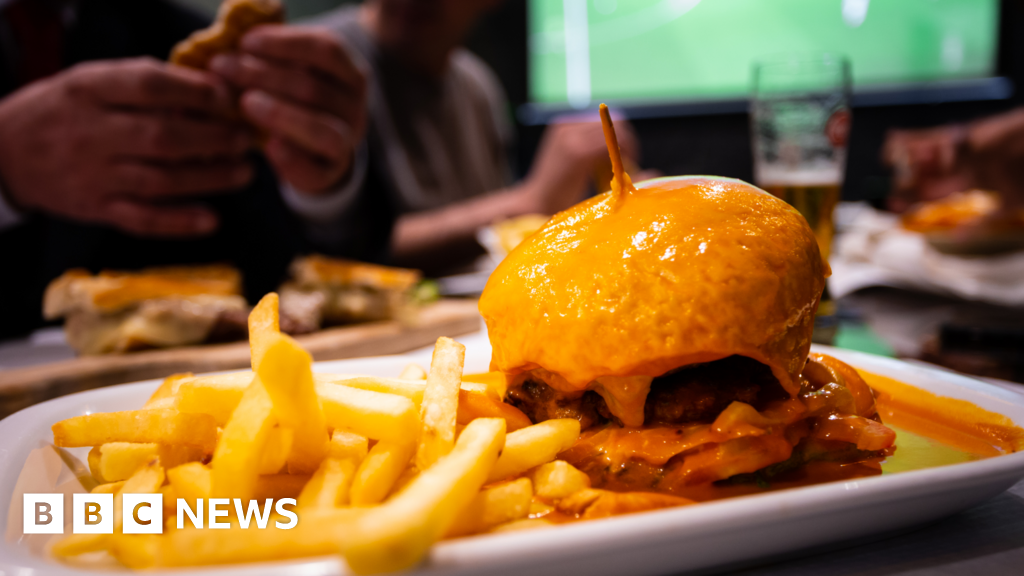Recently, the Nigerian government confirmed the outbreak of cholera in parts of the country, including Lagos State.
Laboratory investigations and test results in Lagos have however confirmed that the current outbreak is associated with the Cholera subtype known as Serovars O1.
The identified Cholera strain according to the Lagos State Health Commissioner, Akin Abayomi, is “highly aggressive and contagious, with the potential for widespread” concerns, heightened by the rainy season.
 Lagos State Health Commissioner, Akin Abayomi
Lagos State Health Commissioner, Akin AbayomiAs of Sunday, data provided by Mr Abayomi on his Instagram account revealed that the state had recorded 350 suspected cases in 29 wards across multiple local government areas (LGAs) with 17 confirmed cases of severe gastroenteritis caused by cholera.
Gastroenteritis, also known as the stomach flu, is an infection that causes inflammation in the stomach and intestines.
The number of fatalities from Cholera in Lagos has increased from five reported on 12 June to 15 deaths attributed to severe dehydration. The breakdown of the cases in Lagos gives a strong indication of how severe the disease is.
Misinformation?
Meanwhile, there have been speculations on social media that contaminated tiger nut drinks led to hospitalisations and deaths from Cholera in Lagos.
Nigerians need credible journalism. Help us report it.
PREMIUM TIMES delivers fact-based journalism for Nigerians, by Nigerians — and our community of supporters, the readers who donate, make our work possible. Help us bring you and millions of others in-depth, meticulously researched news and information.
It’s essential to acknowledge that news production incurs expenses, and we take pride in never placing our stories behind a prohibitive paywall.
Will you support our newsroom with a modest donation to help maintain our commitment to free, accessible news?
An X user, Kageosama, said: “My friend lost his mum and almost his sister this week, they took tiger nut, please be careful out there.”
Another user, Yosemite, posted: “My friend’s brother was hospitalised cos of Cholera & his friend passed from Cholera as well. They both had Tiger nut drink.”
Speaking with PREMIUM TIMES Monday, an Epidemiologist with NCDC, Biodun Ogunniyi, who leads the Public Health Emergency Operation Centre (EOC) activated in Lagos to address the Cholera outbreak, said a case-control study has commenced to ascertain contributing factors and dispel speculations around tiger nut.
 Epidemiologist with NCDC, Biodun Ogunniyi
Epidemiologist with NCDC, Biodun Ogunniyi“A case-control study needs to be done and this is about to start,” Mr Ogunniyi said.
“This is one objective and scientific way to identify possible factors associated with the outbreak…so people can stop the speculations around tiger nut drink and others.”
What is Cholera?
Cholera is an acute diarrhoeal infection caused by ingestion of food or water contaminated with the bacterium Vibrio cholerae.
People living in places with unsafe drinking water, poor sanitation, and inadequate hygiene are at the highest risk of cholera, as it spreads through direct transmission by eating or drinking contaminated food or water.
Cholera can cause severe diarrhoea, and dehydration, and can kill within hours if left untreated. Apart from diarrhoea, other symptoms include nausea/vomiting, dehydration, low blood pressure, rapid weight loss and muscle cramps.
Every year, an estimated 1.3 to 4 million people worldwide get cholera, and between 21,000 to 143,000 people die, according to the Centre for Disease Control and Prevention (CDC).
The Nigerian Centre for Disease Control and Prevention (NCDC) recently reported that Nigeria has recorded 65 confirmed cases of Cholera with 30 deaths from 1 January to 11 June across 96 local governments in 30 states.
Types of Cholera
WHO explains that there are many serogroups of Vibrio cholerae, but only two – O1 and O139 – cause outbreaks, noting that the Vibrio cholerae O1 has caused all recent outbreaks.
“A serogroup refers to a group of serovars that share common antigens,” Mr Ogunniyi noted, adding that in the case of Vibrio cholerae, the serogroup O1 includes two serovars: Ogawa and Inaba.
“Serovar, on the other hand, is a distinct variation within a species of bacteria or virus. Serovar is sometimes used interchangeably with serotype,” the epidemiologist noted.
“In summary, serogroup is a broader classification that encompasses multiple serovars, and serovar is a more specific classification within a serogroup.”
Who is at risk?
According to the latest NCDC advisory, people of all ages living in places with limited access to clean water are more susceptible to cholera.
It noted that people living in areas with poor sanitation and poor hygiene, slum areas where basic water or sanitation infrastructure is missing, or do not perform hand hygiene are also at risk.
 Cases recorded in Lagos
Cases recorded in LagosAccording to a report by the World Bank, over 70 per cent of Lagos residents live in informal settlements or slums, lacking access to basic services like clean water and sanitation.
 Trends of cases in Lagos
Trends of cases in LagosTreatment
Cholera is easily treatable if detected early and infected people are mostly treated through the administration of Oral Rehydration Solution (ORS).
The ORS solution is a powder that can be reconstituted in boiled or bottled water.
In response to the outbreak, the Lagos health commissioner said the ministry of health in collaboration with the ministry of environment, has collected samples of water sources, and food and beverage samples in all the affected LGAs, while inspections of facilities are ongoing.
“We are prepositioning cholera kits in health facilities across the state. Our efforts to control the outbreak also include the distribution of Oral Rehydration Solutions (ORS), and public health education campaigns,” Mr Abayomi said.
Prevention
Overall, cholera can be prevented through ensuring access to safe, potable drinking water; proper sanitation and waste disposal; and appropriate hygiene including handwashing.
To reduce the risk of cholera, the NCDC advised the public to “ensure that water is boiled and stored in a clean and covered container before drinking, practice good personal hand hygiene by washing your hands frequently with soap under clean running water.”
 Cholera Prevention
Cholera Prevention“Use alcohol-based hand sanitiser if soap and clean water are not available. Ensure that food is well cooked before consumption. Only consume raw food such as fruits and vegetables, after washing thoroughly with safe water.”
It also advised against open defecation and indiscriminate refuse dumping, urging residents to ensure proper waste disposal and frequent clearing of sewage.
NCDC also advised health workers to always practise standard safety precautions, which include wearing gloves while handling patients or providing care to an ill patient/relative.
Support PREMIUM TIMES' journalism of integrity and credibility
At Premium Times, we firmly believe in the importance of high-quality journalism. Recognizing that not everyone can afford costly news subscriptions, we are dedicated to delivering meticulously researched, fact-checked news that remains freely accessible to all.
Whether you turn to Premium Times for daily updates, in-depth investigations into pressing national issues, or entertaining trending stories, we value your readership.
It’s essential to acknowledge that news production incurs expenses, and we take pride in never placing our stories behind a prohibitive paywall.
Would you consider supporting us with a modest contribution on a monthly basis to help maintain our commitment to free, accessible news?
TEXT AD: Call Willie - +2348098788999



















 English (US) ·
English (US) ·